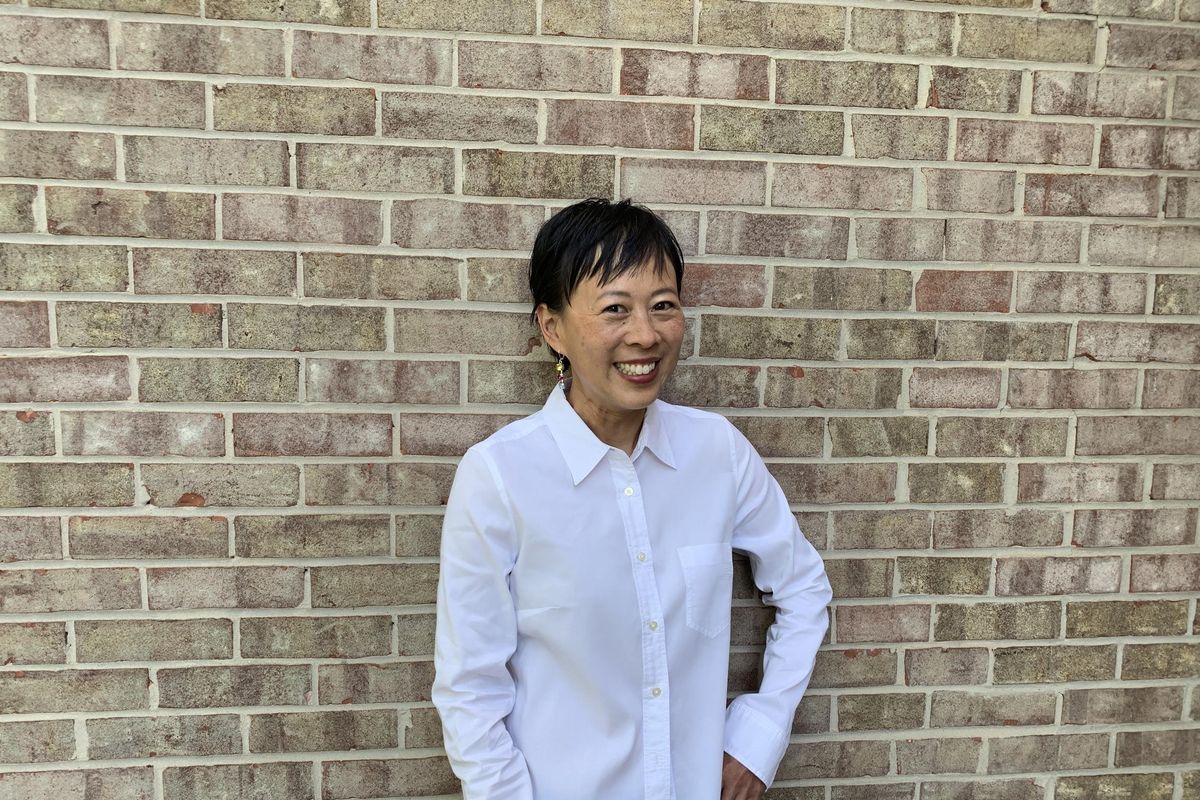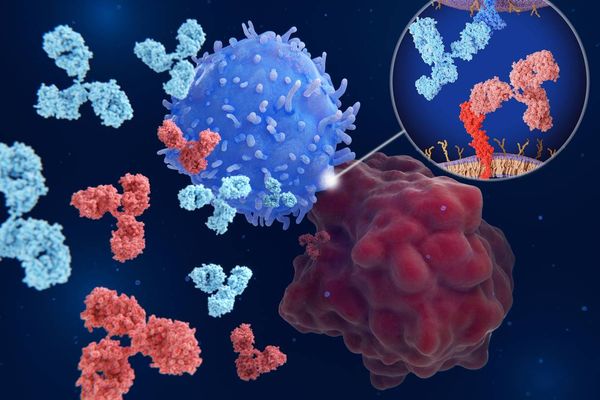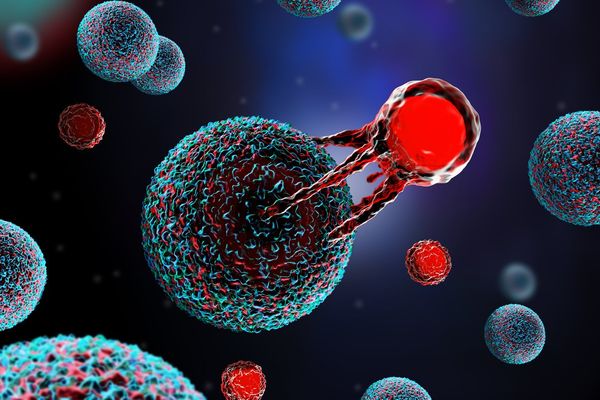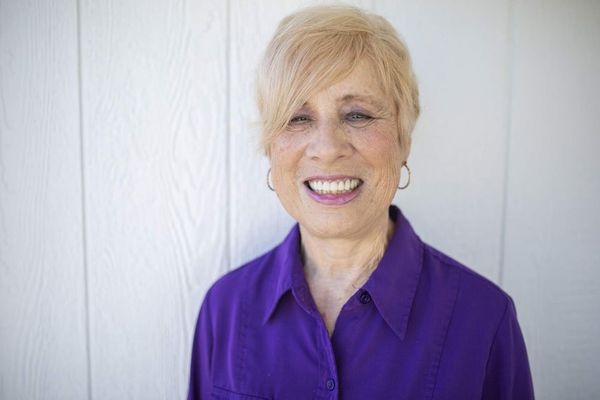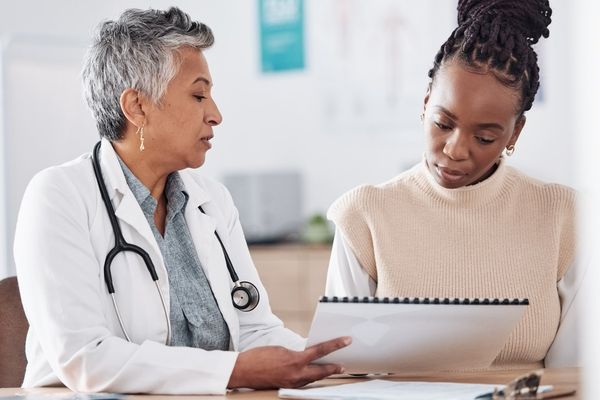As told to Nicole Audrey Spector
It started with a cough and shortness of breath.
This was in May of 2020, and my biggest fear was that I had Covid. So when the Covid test came back negative, I was overcome with relief.
But my upper respiratory symptoms persisted.
I was spending a lot of time outdoors with my husband and our kids since there was so little we could safely do inside during lockdown. Maybe I was just having really bad allergies? My doctor and I went down a few roads to treat this, including prednisone, which made me feel completely bonkers.
When allergy treatments failed, I was treated for walking pneumonia and dosed up with antibiotics.
But that approach didn't work either. I was still coughing and having trouble breathing.
I explained my symptoms to my brother, an anesthesiologist. I'd been holding back on talking to anyone other than my husband about my condition because I didn't want to cause any unnecessary concern. But by then I was beginning to worry.
"Have you been losing weight?" my brother asked.
This made me pause. I had in fact, lost some weight. But I was also exercising a lot and going on more hikes than usual.
"Has anyone mentioned a tumor?" he asked.
I was speechless. A tumor? What? Where? How?
I had a million questions. A slew of appointments with a pulmonologist and hematologist/oncologist, along with a visit to the ER and a few nights' stay in the oncology ward led to one vicious answer: I had stage 4 lung cancer with brain metastases.
My world swayed and spun. Just several weeks earlier, I'd been scared I had a mild case of Covid. Now I was facing the most aggressive kind of lung cancer. Life as I knew it had just taken the most deranged leap.
As much as I was in shock, I was also terribly confused. How on earth did I have lung cancer? I was 47 years old and had never smoked or lived with a smoker. To my knowledge, lung cancer didn't run in our family.
Plus, I took impeccable care of myself. It was all completely unfathomable.
I am Asian-American and learned from my oncologist that Asian female lung cancer patients are more likely to be non-smokers and that women of Asian descent who have never smoked account for more than half of all Asian American women diagnosed with lung cancer.
I learned from my doctor that a genetic mutation could be the driving factor behind my lung cancer. If that were the case, I might be a candidate for a new medication that can be used to treat certain types of lung cancer that have the specific mutation.
I was hoping I had this genetic mutation so I could be treated with this medicine, but it turned out that no, I didn't have the genetic mutation. I was so disappointed.
So now I'd gone from hoping I didn't have Covid to hoping I didn't have cancer to learning that I had cancer in my lungs and then also in my brain. What was next? I'd be ruled out as a candidate for lung surgery? I'd undergo chemotherapy and immunotherapy and be sick for months only to learn the treatments weren't entirely successful?
Whelp. Pretty much that is what happened. Though the chemo worked in diminishing the cancerous lesions in my brain, it was clear that, though somewhat shrunken, the tumors in my lungs weren't going anywhere. They remained pressed malevolently against my heart.
I felt like my future was being pulled out from under me. I was racked with morbid ideations — thinking that I'd be alive only for another few months or less.
I was beyond devastated that the chemo didn't eradicate the cancer. So too, was my husband, who has been so supportive and such a pillar of strength throughout this whole ordeal.
Our children had also been tremendously brave. As much as we tried to protect them from all the badness going on, my cancer treatments were rough on them. The mere thought of them worrying about me brings me to tears. I never wanted to take the light out of their eyes.
Though frail and exhausted from the chemo, I refused to give up. I stormed my doctors with questions around next steps. I had to beat this cancer.
My doctors were as passionate as I was, but they were more knowledgeable and eager to explore other options. Rather than my destroying the cancer entirely — which was looking less possible and more traumatic for my body and my life — they asked, "Why not focus on surviving with cancer?"
The concept of carrying on my life with cancer was completely foreign to me, and yet, as soon as my doctor enlightened me to it, a weight lifted off my chest.
I wondered, Is it possible to live a good life with cancer?
My doctors explained that it is quite possible. It's just about managing the cancer as opposed to trying to extinguish all evidence of it. This meant no more chemo and, ultimately, no more feeling like I was losing a terminal battle.
For the first time since this nightmare began I felt a sense of freedom returning to me. I was getting my life back. And no, it wouldn't look like my life did before the cancer. There would still be tumors inside me. But by working closely with my oncologist and continuing immunotherapy and antiangiogenic therapy to treat cancer for the foreseeable future, it could be kept at bay.
I now embrace my role as a human surviving with cancer. I attend LUNGevity support groups and have formed wonderful friendships with fellow survivors. There are actually quite a few of us! And most importantly, I take a lot more time for myself and my family than I used to, treasuring every day — every moment — as a precious gift.
I've always been grateful for my family, but I never acknowledged my gratitude as much as I do now. I breathe it all in even deeper now. My heart sings. And the light has not only returned to my children's eyes, it has returned to mine.
Resources:
American Cancer Society
American Lung Association
Lungevity
- Join the Fight: Stand Up to Lung Cancer - HealthyWomen ›
- Lung Cancer - HealthyWomen ›
- Lung Cancer 101 - HealthyWomen ›
- Ask the Expert: Lung Cancer in Women - HealthyWomen ›
- Ask the Expert: Ovarian Cancer - HealthyWomen ›
- Understanding the Different Types of Lung Cancer - HealthyWomen ›
- Entender los varios tipos de cáncer de pulmón - HealthyWomen ›
- I’m a Non-Smoker with Stage 4 Lung Cancer - HealthyWomen ›
- Nunca fumé pero tengo cáncer pulmonar de etapa 4 - HealthyWomen ›
- Why Are More Non-Smokers Getting Lung Cancer? - HealthyWomen ›
- ¿Por qué personas que no fuman están desarrollando cáncer pulmonar? - HealthyWomen ›

